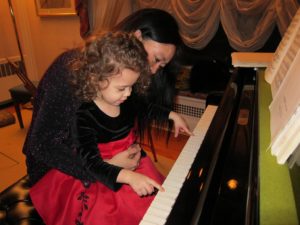As many of you know, I am on a mission to promote music as a healing agent in this world.

I want to use my music to promote empathy and harmony in this divisive world through offering experiences of communal appreciation music. Music helps us realize how we share our time and space, and what we find beautiful.
How can I best achieve my goal? One of my many trails has been my 100-day practice challenge on YouTube. I wanted to promote the practice of music as an enjoyable, eye-opening process, not just as a perfected presentation. Unexpectedly, this project led me to various communities of amateur musicians. Whatever their levels of playing, understanding, or experience may be, they are extremely devoted and passionate musicians. They follow my YouTube practice sessions daily, leave comments and questions, and share their progress with me. Some of them are completely self-taught, learning by watching YouTube tutorials. Others invest a significant amount of their resources to going to lessons, workshops, festivals, and concerts.
I was curious about them, and how I can best contribute to their musical endeavors. So, I conducted a survey. (If you would like to participate, here is the survey. https://musicalmakiko.com/dds) The survey was designed by using Ryan Levesque’s “Ask Formula,” and was analyzed according to his guidelines.
Nearly 80% of my respondents were between the ages of 40-65. I thought there would be many more retired people, but they (13%) were outnumbered by 25-40 year-olds (21%). That, of course, may have to do with the fact that I belong to 40-65 age group, but I’ve reached out to random groups of amateur musicians as well.
According to Ryan Levesque, the number of words people use in their short answers reflects on how likely they would commit to the product you would be marketing. What was surprising to me was that people, who used the most number of words in their short answers ended up not spending as much money on their piano practice as people who used less number of words in their response. The responders were split pretty evenly between people who spend less than $50/mo on their practice, vs. people who spend $100+/mo. However, the top 10% of the responders were ages 25-40, who spent none, or less than $50/mo on the piano.
Now the most important part: the analysis of the short answer. The question was “What is your #1 single biggest challenge you face at your daily piano practice, or piano performance, right now that you wish you had some help on?” I had to exclude answers like “difficulty reading music with glasses.” And obviously, my interpretation was applied. For example, there was a number of people who wanted a barometer for their improvement. I took the liberty of including that in “practice technique.” There were also people wanting tips on interpretation, fingerings, musicality, etc. I’ve included that in “understanding theory,” thinking that with the right understanding of music theory, these things often become apparent. With these interpretations, here are the most frequently addressed concerns (“buckets” according to Ryan Levesque):
- Time management/efficient practicing 33%
- Injury prevention (or recovery) /right technique 24%
- stage fright 16.5%
- Understanding Theory 16.5%
The time management may have come up at the top because my friend who helped me spread the word about this survey said I was considering creating a practice app. Apparently, there is an app called “music journal” that is not as easily accessible as before, and people seem to miss it. Two comments mentioned the app by name.
If I were to change my analysis, however, and concentrate on the top 50% of my responders, according to the number of words used in their survey response, then there is a tremendous shift in the interests.
- Theory 47%
- Injury prevention (or recovery)/right technique 20%
- Time management/efficient practicing 20%
- stage fright 13%
The shift is this dramatic, partially because I don’t have enough data to go on yet (only 23 responders, despite my, and my friends’, efforts…)
I have to analyze the data (and collect more) to really consider my course of action. However, here is my plan. I want to create a product for wide distribution: So, an app, webinar, a book, or possibly, all of the above!
You can help me. Participate in the survey. Tell me about your needs in by commenting on this blog. Share your thoughts, challenges, some tools you use you find helpful, etc. etc. Help me help you!